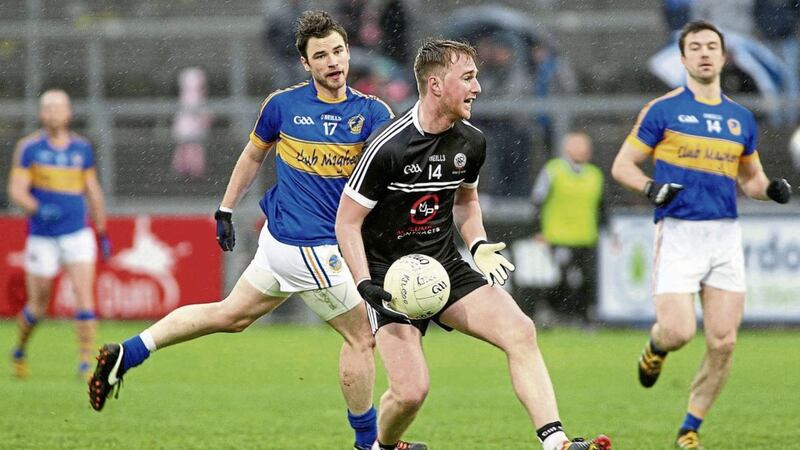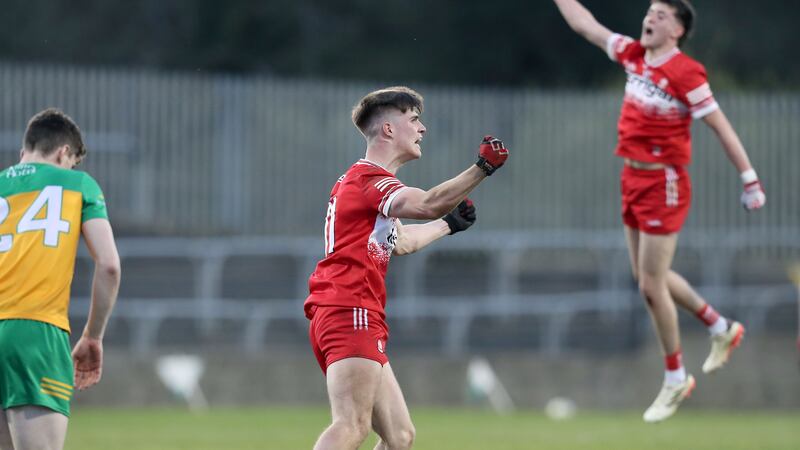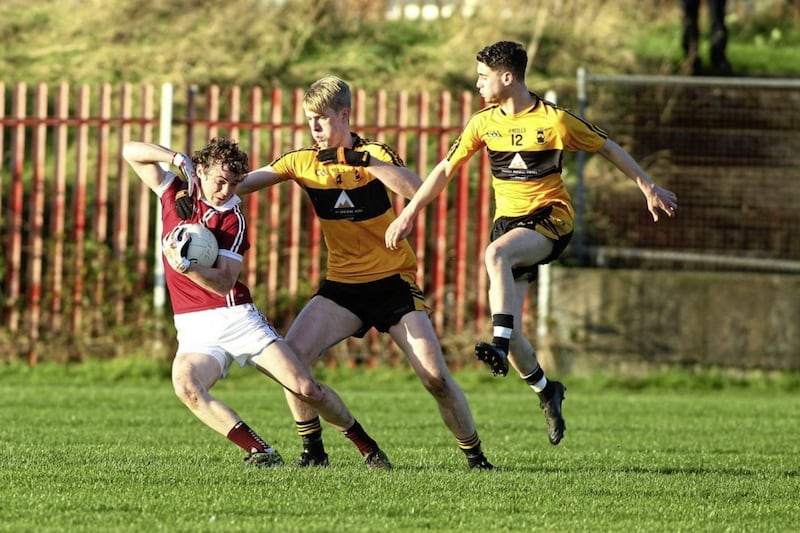IT'S been a strange few weeks, weather wise. Last week we witnessed an ex-Hurricane Ophelia, and like all things ‘ex’, the advice was to avoid it.
Of course, you always get the few eejits who ignore advice to place themselves at risk, such as the two guys who thought it fun to dive into 10-foot waves.
On Friday past came Storm Brian. To me, it was no different than any blustery autumn night, but I guess to those who were affected by Ophelia, it was akin to being kicked in the groin when they were down.
In a few more days we will witness the perennial turning back of the clocks. It is a sure sign that winter is fast approaching. I love this time of year. I’m brought back to my primary school days when our teacher Mr Devlin would have recited a Seamus Heaney poem, Blackberry Picking.
Back then, I thought it was a few verses describing his experiences picking blackberries as the title suggests, such was my innocent mind.
Little did I realise our teacher was delicately priming our minds to deal with disappointments. Sometimes the best school lessons were about life skills rather than education.
To a championship winner, there is no better feeling than lacing up a pair of football boots in late August. Each training session serves to affirm your position as the best team in the county. The neighbouring clubs’ players drive past the training ground each night and take a mental note of a packed carpark, floodlight pitches and yelps amid the rising steam.
Jealousy is their overriding emotion.
I’ve been this passer-by on a number of occasions and it’s not easy, however, channelled the right way, it can become a powerful motivator for the season ahead. It is much easier to be training as a winner.
But what about the lads who are slogging it out to bring the league to a close?
I’m not sure winning a league medal holds enough gravitas to motivate players in October or November.
I hear it said the most consistent teams win the league and it is a good marker for the following season. This synopsis holds no weight with me particularly in football circles when, as is the case in many counties, the main teams are devoid of their county players and their primary focus is on championship success.
Some counties operate a league in which the team with the most points wins, end of.
Others persevere with play-offs which compels the top four teams to play at least one more game or maybe two to win the league.
The straight shoot-out has so much going for it, yet some counties even drag this out over the autumn months.
It is at this point that I must heap praise on my own county of Armagh for getting it right.
Within the county, the league starts early April and concludes in August.
There are a couple of quiet weeks before the championship commences, which concludes within six weeks. There is a defined season and more importantly, there is a distinct, if unofficial, closed season. Compare this model with other counties and there is a stark strain on players.
Counties like Down have changed their league format to a straight shoot-out yet there are league games still to be played, and this scenario is after the 2016 league final was only decided in February 2017.
Monaghan operate a last four play-off. It is rumbling on with no end in sight, most likely owing to Scotstown’s run in the Ulster club championship.
Should Scotstown progress to the Ulster final, it is possible that the Monaghan senior league champions will be decided in mid-December.
Surely teams playing out league fixtures struggling to field 20 players at training is an unwanted situation. There has been much discussion about a need for a closed season but it appears only the county player will benefit from this.
Prolonged seasons not only have an impact on club players. Hosting training sessions and preparing for games is a costly business.
Running floodlights, providing security for players’ cars as they train, post-session meals, the impact on players’ studies and the wider impact on their social or family lives, the increased risk of accidents due to travelling at night in adverse weather conditions, the eroding goodwill of volunteers – these must all be weighed up as part of the decision-making at county board conventions.
Psychologically, are the players really motivated to train at this time of year for a league title or is it draining their enthusiasm for the game?
It seems that each county has autonomy to structure their league in whichever way they see fit.
Perhaps central council should tighten the parameters within which they can apply some flexibility so that the club and the club player is shielded from this drudgery.
Much like in Heaney’s poem, training at this time of year with limited incentives is like watching berries ferment and grow fungus. Eventually, we might all come to realise that this always happens.








